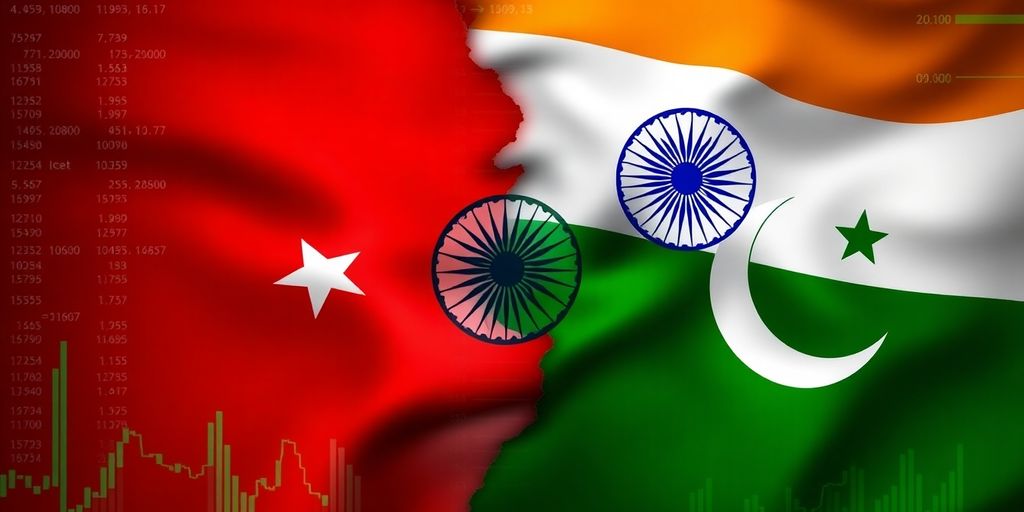India has initiated a significant economic boycott against Turkey following its support for Pakistan amid escalating tensions in Kashmir. This move reflects a growing trend of consumer-led diplomacy in India, where public sentiment is increasingly influencing foreign policy decisions.
Key Takeaways
- India has seen a sharp decline in travel bookings to Turkey and Azerbaijan, with cancellations surging.
- Major Indian universities have suspended partnerships with Turkish institutions.
- The Indian government has revoked the operating license of Turkish firm Celebi Aviation.
- The boycott is part of a broader public backlash against Turkey’s support for Pakistan during recent military conflicts.
Background of the Conflict
The diplomatic rift between India and Turkey intensified after India launched "Operation Sindoor" on May 7, targeting alleged militant camps in Pakistan. This military action was a response to a deadly attack in Pahalgam, Kashmir, which India attributed to Pakistan. In the wake of these events, Turkey and Azerbaijan publicly supported Pakistan, further aggravating tensions.
Economic Impact of the Boycott
The boycott has manifested in various ways:
- Travel Cancellations: Indian travel firms reported a 60% drop in bookings to Turkey and Azerbaijan, with cancellations increasing by 250% in just a week. Popular travel platforms like MakeMyTrip and EaseMyTrip have noted a significant shift in consumer behavior, with many travelers opting for alternative destinations such as Greece and Thailand.
- Suspension of Academic Ties: Several prominent Indian universities, including Jawaharlal Nehru University and Jamia Millia Islamia, have suspended their academic collaborations with Turkish institutions, citing national security concerns.
- Business Boycotts: Indian traders, particularly in the marble and fruit sectors, have begun boycotting Turkish goods. The Udaipur Marble Processors Committee announced a halt to trade with Turkey, emphasizing the need to send a strong message against Turkey’s support for Pakistan.
Government Actions
In addition to public sentiment, the Indian government has taken concrete steps in response to the situation:
- Revocation of Licenses: The Bureau of Civil Aviation Security canceled the operating license of Celebi Aviation, a Turkish firm providing ground handling services at major Indian airports.
- Public Statements: Indian officials, including members of the ruling Bharatiya Janata Party, have publicly supported the boycott, urging citizens to reconsider spending their money in countries that support adversaries.
- Civic Engagement: The backlash has been characterized as a form of consumer-led diplomacy, where public opinion is increasingly shaping economic relations and foreign policy.
Conclusion
The ongoing boycott against Turkey highlights the intersection of public sentiment and foreign policy in India. As the situation evolves, it remains to be seen how these economic measures will impact diplomatic relations and whether they will lead to a broader shift in India’s approach to international partnerships. The situation serves as a reminder of the power of consumer choices in shaping geopolitical landscapes.
Sources
- India wages economic war on Turkey for supporting Pakistan in Kashmir, AL-Monitor.
- In India, boycott calls against Turkey, Azerbaijan reflect growing ‘consumer-led diplomacy’, South China Morning Post.
- Indian travel firms report drop in Turkey bookings over Pakistan support, Reuters.
- A look at actions taken in India over its support to Pakistan after Operation Sindoor |
Today News, Mint. - Indians urge travel boycott amid support to Pakistan, BBC.






